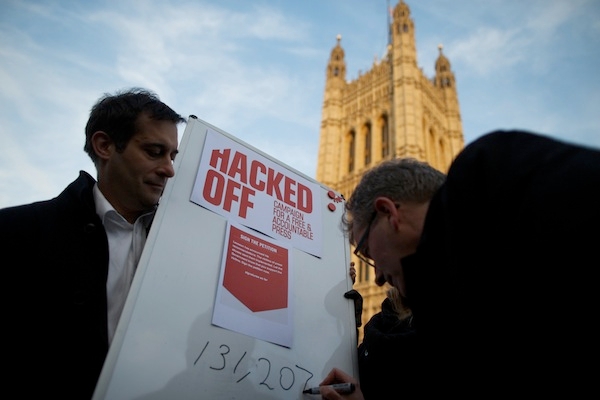On Monday, Parliament will decide the future of blogging in this country. As the government’s press regulation proposals stand, blogs big and small would come under the new press regulator. This would make bloggers liable for significant compensation sums (aka exemplary damages), fees for joining the regulator as an ‘associated member’ (newspapers join as full members) as well as for increased legal costs.
While the proposals could send bloggers rogue, to host their sites abroad and out of Parliament’s jurisdiction, others who can’t face the hassle may decide to close down. The problem stems from Leveson’s lack of concern for (or understanding of) the Internet. His report devoted just one page to the Internet. It was left to the legislators to botch together a solution for ‘wild west’ of publishing in their 2am deal. Big Brother Watch have taken up the case and successfully persuaded Conservative peer Lord Lucas to table an amendment to the Crime and Courts Bill to take most bloggers out of the equation:
‘9) “A publisher who does not exceed the definition of a small or medium-sized enterprise as defined in Section 382 and 465 Companies Act 2006.”’
Meanwhile, Labour have also tabled a different amendment which targets ‘small blogs’. Unlike to Lucas’ suggestion, Lord Stevenson’s detailed amendment would exclude one-man bands and non-profit sites from the regulator. This aim of this amendment seems to be to keep bloggers in their place — why hire more people for your blog if you’re going to face more costs and legal problems? It would encourage the use of unpaid contributors too.
Although Hacked Off has posed a similarly bizarre solution of excluding non-profit organisations from regulation. Although the campaign group were present at the now-infamous cross-party talks on Sunday night, it has since decided to disagree with the plan. But focusing on profit is a poor distinction because the costs of running a blog are pretty minimal. As soon as a blogger earns, say £80 a year from Google Adwords to pay for their hosting at £60, they are making a profit and would be liable under the new body.
These calls for last minute changes to the legislation pose a political problem for Maria Miller. If the Culture Secretary accepts there is a need to tinker with the proposals, it undermines the power of the cross-party agreement and gives the impression the solution was cobbled together at the last minute (which it was).
Although bloggers now play a vital role in the media ecosystem, the Barnet Eye, for example, has nothing in common with the Daily Mail in a commercial sense. One is a multi-million pound company while the other is a spare time endeavour. If our lawmakers understand this and appreciate the importance of bloggers, they will hopefully push forward with Lucas’s amendment or a similar sensible deal.






Comments